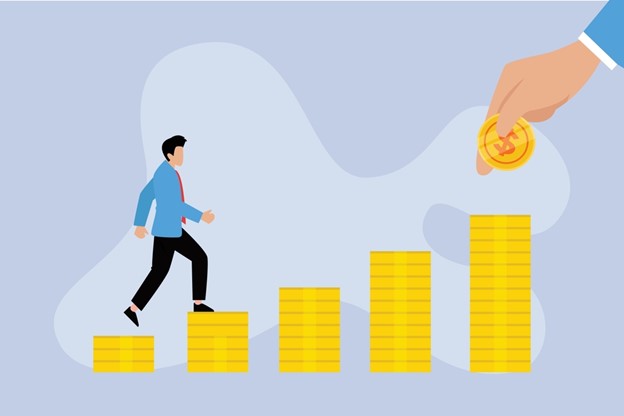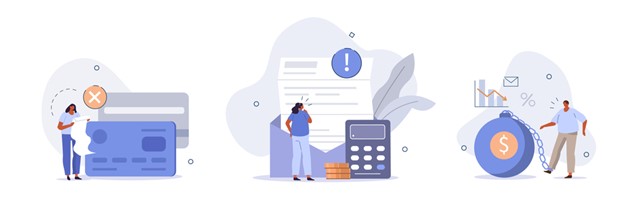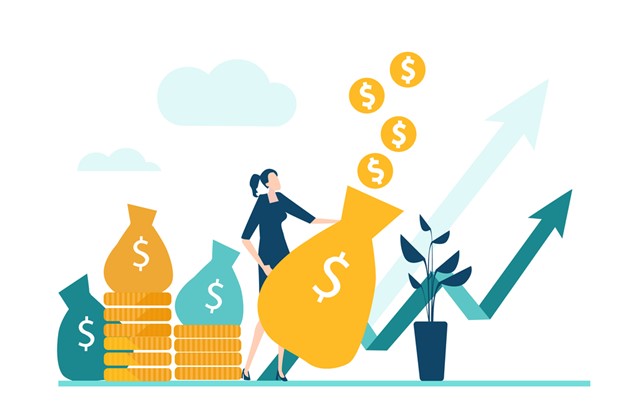

It may seem almost fictional, but the truth of the matter is that Americans are carrying almost $17.3 trillion in household debt as of 2024. After zeroing in on credit card data, the Federal Reserve Bank of New York determined that debt history reflects the highest credit card debt in major states of the U.S., followed by student loans, home equity loans, and mortgages in that order. Given that such diverse kinds of loans were being approved for consumers across the United States means that credit lenders are not putting as much thought into educating their consumers on responsible borrowing strategies as they should. Consequently, a debilitating problem among American consumers arises where they have racked up credit card debt that they are now unable to pay, and that means that more accounts are ending in collections than we anticipated.
On the other hand, things are not looking up for commercial debts either with defaults soaring to 13.7 trillion debt load rising from 85 to 153 companies in a year. That means that more people in commercial sectors are also dealing with the same issues when it comes to managing their accounts receivable. Considering these details, it is fair to assume that collections are becoming more complicated and need proper channels and strategies to bring the numbers down.

There are various reasons why debt would rise at such an alarming rate for consumers in the U.S. Aside from constant inflation, we have also seen that there is a greater reliance on credit card usage, adding to the amount of debt that racks up for consumers, and not nearly enough financial planning that can mitigate the risk of delinquencies in repayment of that debt. Some factors can help contain this trajectory:
While it is not entirely upon the lenders to educate their borrowers on the consequences of non-payment, delinquencies hurt their revenue as much as they messe their borrower’s payment histories. A greater emphasis must be placed on the financial education of borrowers before credit is extended to ensure they have a game plan for repayment and avoid delinquency.

For more updates on Cedar Financials’ debt recovery advice, follow:
Another way that collection strategies can be tailored to consumer’s needs is to ensure they are regularly updated on the status of their debt and schedule of repayment. While many companies do interact with their consumers and reach out to remind them of payment, early intervention is often overlooked and then reminders become less effective. Automated dunning processes free up resources for core teams and ensure that a regular connection is established with the consumers as well. Along with that, your collection strategies must have regular reporting and analytics so that every metric is properly analyzed, and strategies are formed accordingly.
In most outreach strategies, consumers are not contacted as frequently as they should when they default on their payments early on. That is why most companies end up with higher accounts receivable without having a game plan to recover their cash flow. Implementing proper reporting tools to monitor payment trends and identify potential issues can minimize revenue loss in the beginning.
Why is it that when most companies contact commercial debt collection agencies or third-party collection agencies for their accounts receivables, they are often met with disappointing results? That’s probably because debt collection agencies don’t pay as much attention to compliance and effective collection strategies when they train their collectors, as they should. When choosing a debt collection agency, you need to ensure you find a partner in your accounts receivable recovery that can work to recover your revenue for small businesses and enterprises alike. The second and very important consideration is that they should adhere to compliance requirements and ensure their collection strategies are up to par with industry standards.
Training your collectors to recover debt effectively is an art that many collection agencies miss. However, a reliable commercial debt collection agency and third-party collection partner should pay special attention to it. Cedar Financial is one of the few debt collection agencies in the U.S. that have mastered the art of empathetic and effective debt collection by training their debt collectors to recover debt with cordial and insightful collection strategies. Other than training collectors on handling consumer calls, they must be trained on the right kind of language to use, the tone of voice, and ample information on collections and debt recovery. When faced with burning questions from consumers, they need to be well-versed in different scenarios that lead to delinquency and be able to devise innovative solutions to repayment for consumers. Only the best debt collectors know to prioritize flexible payment plans over relentless demands for repayment to win over consumers and service clients properly.

Being able to recover debt and replenish accounts receivable is a tall order that requires adequate experience in the debt collection industry. As a small business owner or commercial enterprise, you need someone who can effectively remedy your AR woes and ensure effective recovery for you. Cedar Financial comes up as the obvious choice for several reasons.

